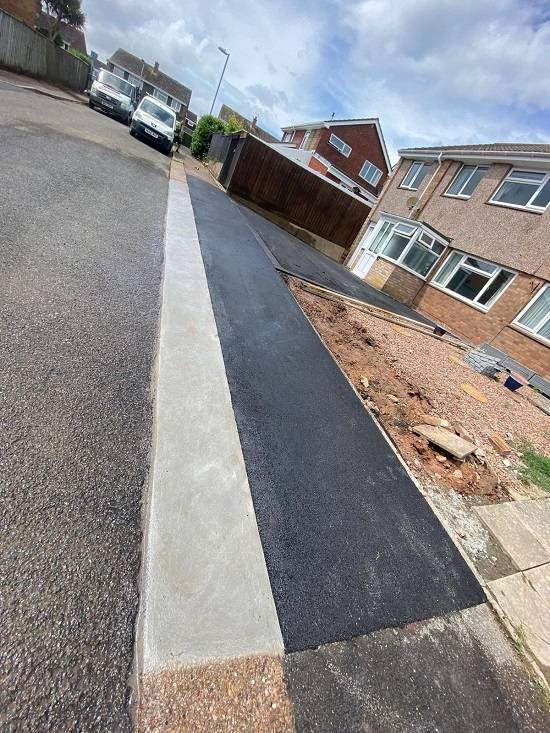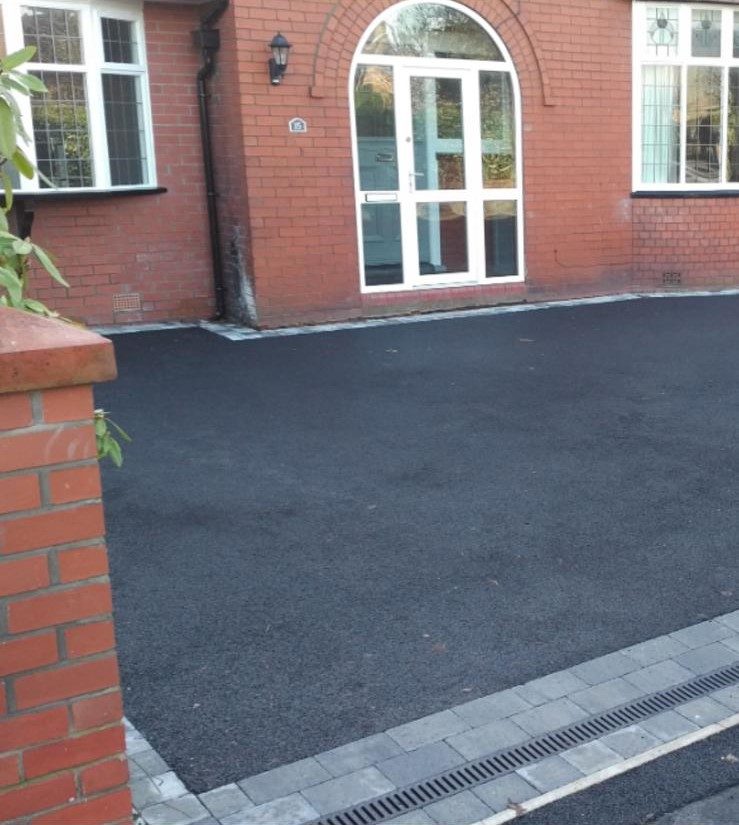A tarmac driveway is a remarkable alternative to concrete, becoming increasingly popular among householders for its robustness and low maintenance requirements. But what exactly is a tarmac driveway, and why should one consider it for their property? If you are considering replacing or resurfacing your driveway, we at A and M Groundworks crafted this informative guide to ease the procedure.
What is a Tarmac Driveway?
A tarmac driveway is a pavement surface widely used for domestic driveways and roads. It is created from a mixture of asphalt and aggregate materials such as gravel or crushed rock, which are compacted to form a robust, hard-wearing surface that can effectively manage high traffic. Whereas tarmac driveways are usually treated as synonymous with asphalt because of their identical appearance, they are created from totally different materials.
Benefits of a Tarmac Driveway
The following are a few of the benefits of a tarmac driveway:
Maintenance Friendly
Tarmac driveways require little maintenance, just seldom sweeping and cleaning to keep them looking fresh, in contrast to other driveways requiring routine sealing and maintenance.
Robust and Long-lasting
Tarmac driveways are robust and enduring, surviving up to 20 years or more with little maintenance. They are less prone to cracking and breaking, making them a perfect option for homeowners.
Adds Value to Your Property
A well-kept tarmac driveway increases your residence’s visual charm, making it more appealing to potential purchasers and adding value to your property.
Resistance to Weather Conditions
Tarmac driveways are incredibly weather-enduring, capable of resisting downpours, snow, and ice without cracking or deteriorating, making them perfect for drastic weather changes.
Fast Installation
Tarmac driveways are straightforward and fast to install, with the average job finished in only a few hours, in contrast to concrete pours that take a long time to set.
Economical
Tarmac driveways are cheaper than concrete or brick. They require lower installation costs and minimal maintenance, providing long-term savings.
Installation Process of a Tarmac Driveway
The tarmac driveway installation procedure includes the following steps:
Step 1: Start by stabilising the ground. This requires digging the place where the driveway will be set out.
Step 2: After the area has been excavated, set the sub-base material in place. This gives a robust foundation for the tarmac and guarantees the driveway’s steadiness.
Step 3: Ensure proper drainage to avoid water pooling, which can harm the tarmac. This step is vital for the durability of your driveway.
Step 4: After the foundation is prepared, pour the hot tarmac on the surface.
Step 5: Once the tarmac has been laid, compact it with a roller to guarantee a smooth and even exterior.
Step 6: The driveway will be usable after some days once the tarmac has completely cured.

Maintenance Tips for Tarmac Driveways
Routine maintenance is essential to keeping your tarmac driveway in excellent condition and prolonging its existence.
The following are the maintenance tips for tarmac driveways:
Routine Cleaning: Keep your driveway clean by sweeping or utilising a power washer to eliminate the following:
- Dirt
- Debris
- Stains
Resealing: Apply a seal coat every couple of years to preserve the integrity of the tarmac surface and safeguard it from external elements.
Fixing Cracks and Potholes: Repair cracks or potholes immediately to avoid additional damage and sustain an even surface for driving.
Preventing Weed Growth: Use weed killer or a weed barrier to hinder weeds from developing and keep your driveway well-maintained.
Avoid Heavy Loads: Safeguard your tarmac driveway by abstaining from parking heavy vehicles or trailers, particularly at high temperatures when the surface is more susceptible to harm.
How Long Does a Tarmac Driveway Last?
A tarmac driveway usually survives between 20 to 30 years when installed and retained appropriately. Nevertheless, its service life can be impacted by the following factors:
- Materials Quality
- Surface Thickness
- Maintenance Level It Receives
If not accurately installed or retained, issues like cracks and potholes can occur, reducing the structure's working life to 10 to 15 years or even less.
Cost of a Tarmac Driveway
The cost of installing a tarmac driveway differs. It is dependent on the following factors:
- Size
- Installation Complexity
On average, a fresh tarmac driveway costs between 50 and 60 pounds per square meter (1064 to 1277 Rand per square meter). Tarmac driveways are likely to be more economical than alternatives such as concrete or brick driveways.
In a Nutshell!
A tarmac driveway is a robust, weather-proof, and economical option for domestic properties. It is simple to maintain, built to last, and can enhance the worth of residence. If you are thinking of installing a fresh driveway, a tarmac option is surely worth trying.
For superior tarmac driveway installation, get in touch with the crew at A and M Groundworks by dialling 01392984088! We will effectively manage all your tarmac driveway requirements, guaranteeing a secure, durable, and long-term result.

